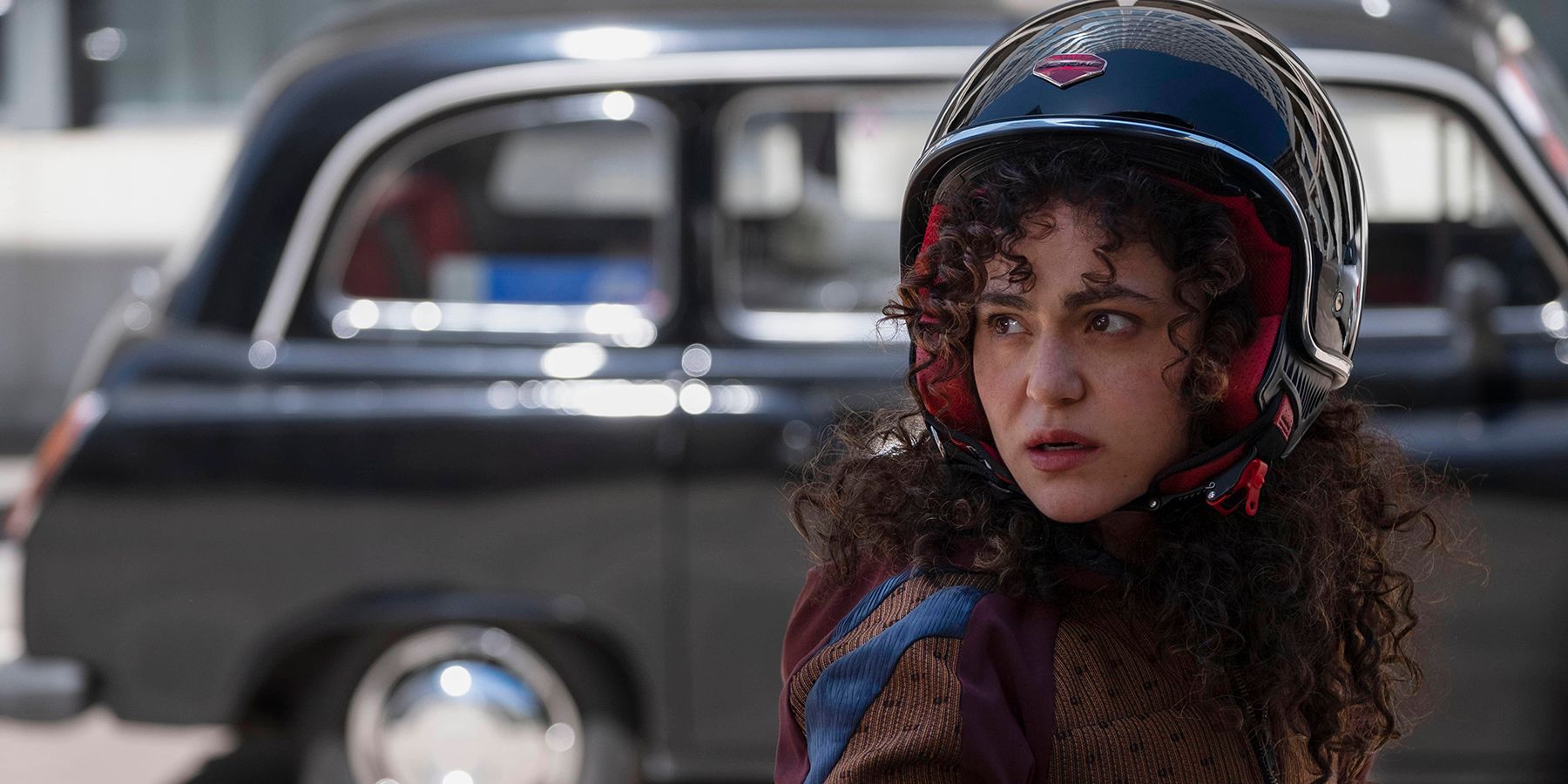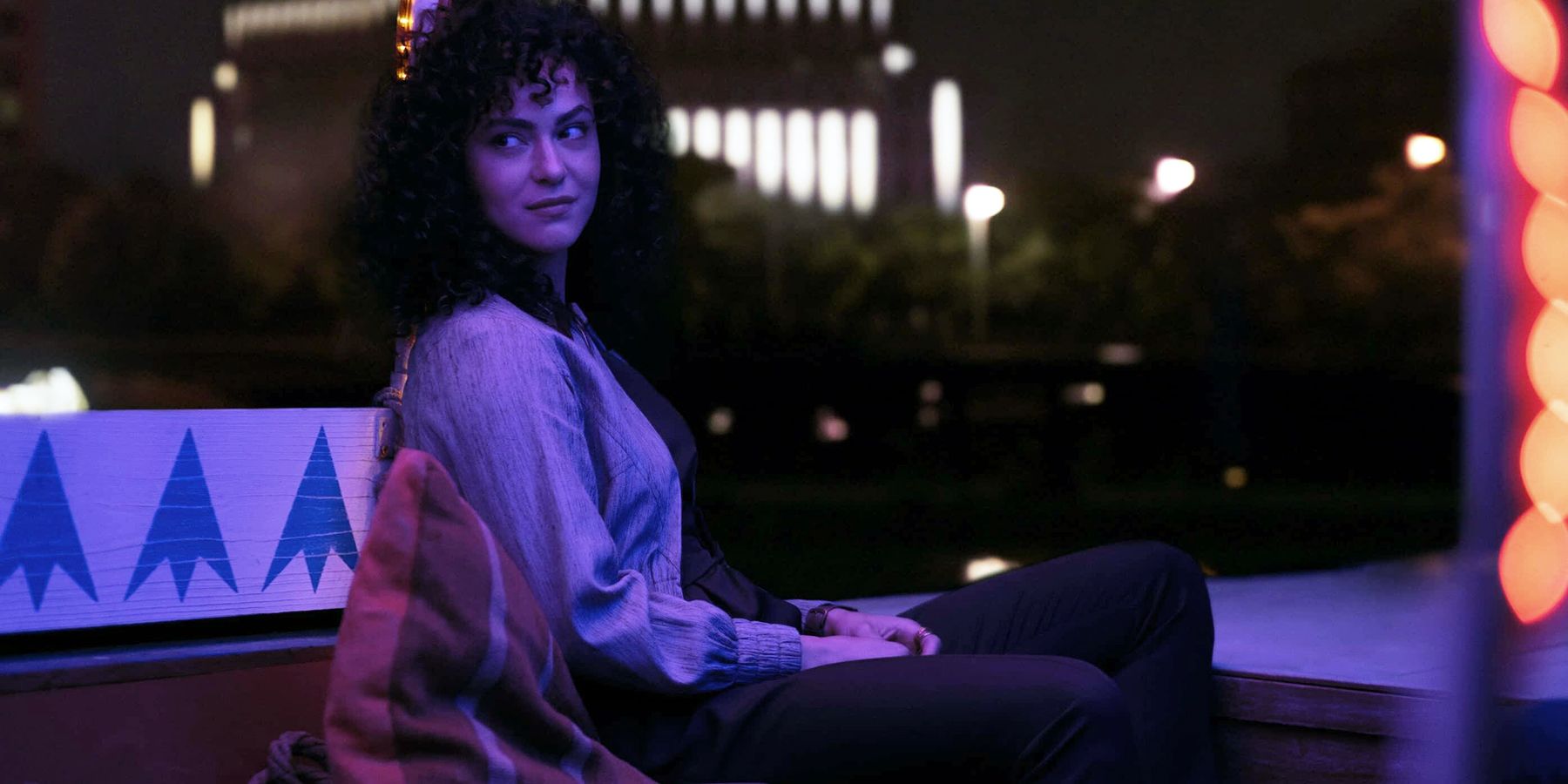May Calamawy is shaping out to be the next female adventure star with her latest outing as Layla El-Faouly in Moon Knight. Since her first appearance in Marvel Studios' newest series, Calamawy has surprised fans with how comfortable she looks while performing various stunts. The actor has revealed how she shaped her character, survived those fight scenes, and the importance of portraying an Arab woman in Western cinema.
In a Marvel Studios series about a protagonist suffering from dissociative identity disorder (DID), while also serving as the avatar of the Egyptian God Khonshu, Calamawy manages to hold her own as El-Faouly. She might not possess any superpowers or the blessings of a god, but she fights her way out of tough situations and even manages to defeat a Heka priest in Ammit's tomb all by herself in the latest episode of Moon Knight.
While shooting for Moon Knight, Calamawy recalls being thrown into situations by the stunt team that she wasn’t sure she could handle. When speaking to Elle, she revealed that she wanted El-Faouly's fight style to not look “choreographed and clean,” because she isn’t a trained fighter. "She has learned to fight on the streets. She’s kind of just reacting, and it’s working for her and I really love that,” she told the magazine. Ultimately, she was pleased with the way the action sequences turned out. It was also extremely important to Calamawy, who is of Egyptian and Palestinian descent, that her character wasn’t overshadowed by any pre-existing stereotypes. When running through lines or filming on set, she made it a point to approach Moon Knight director Mohamed Diab, who also happens to be an Egyptian filmmaker, and share her thoughts. “I love how Kevin Feige gave us the freedom to share that,” she said and confirmed that it was a safe space where her voice was always heard.
While portraying the role of an archaeologist who goes on striking adventures, Calamawy also wanted to ensure that her character didn’t seem like a replica of Lara Croft, the famous fictional character from the Tomb Raider franchise. “I was careful not to draw inspiration from someone in the West because they want me to bring my side,” she revealed. Instead, she focused on women in the Middle East and drew strength from their personalities.
Over the past two decades, the approach towards female characters in the MCU has changed drastically. As part of Phase 4 of the MCU, female characters are getting more screen time and play an integral role in the film or television series’ plot. From simply being love interests to the lead male characters, the women are now being shaped as superheroes with their own standalone projects. Scarlett Johansson's Natasha Romanoff went from being a supporting character in the Avengers to getting her own film in the form of Black Widow. Fellow Avenger Carol Danvers, portrayed by Brie Larson, also was the lead star in her film and made an appearance in Avengers: Endgame. Elizabeth Olsen's Wanda Maximoff appeared in Disney Plus' WandaVision and will be seen playing an integral role in the upcoming Doctor Strange in the Multiverse of Madness.
Female characters in the MCU, who possess no superpowers, are also receiving more relevance. When the MCU was first established, characters like Gwyneth Paltrow's Pepper Potts or Natalie Portman's Jane Foster were not given enough credit. Marvel decided to fix both those issues, with Potts fighting alongside the Avengers in Avengers: Endgame and Foster wielding Mjölnir in the upcoming Thor: Love and Thunder as the Mighty Thor. Awkwafina played an important role in Shang-Chi and the Legend of the Ten Rings, despite her character having no special powers. Calamawy's El-Faouly has now joined the bandwagon and is the first woman of Arab descent to do so. Things only seem to be going uphill from here on.
Moon Knight is streaming on Disney Plus.
Source: Elle


